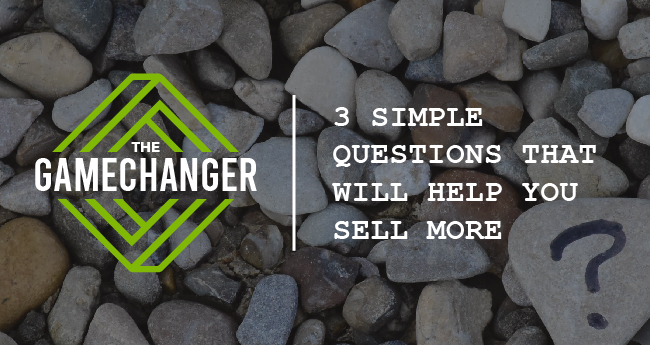We all have a perception of salespeople. Let’s be honest, most of them are negative.
When I bought my last car, I had both a negative and positive experience. At one dealership, the salesman practically begged me to buy the car. After I left the dealership, he called me to let me know that I would be helping him out if I bought the car from him. He informed me that my purchase would help him qualify for a bonus for the month. I couldn’t believe it. I said, “Jim, I am really happy that you have that opportunity to hit your bonus, but unfortunately my vehicle choice is really not about you.”
At another dealership. I met Brad. Brad was a great salesman. He asked me a lot of questions. I was looking for something specific and he wanted to know why it was important for me to find this specific car.
He made the buying experience about my desire and what I valued. I liked Brad and would buy from him every time. Unfortunately, my encounter with Jim impacted how I saw Brad, and Brad really had to work to gain my trust and business. This is probably true for everyone.
Everyone, at one time or another, experienced a salesperson who left a bad impression on the whole industry.
As salespeople, we are dismantling and reconstructing the perception of what a good salesperson is and what they do everyday. You have probably heard it said, ‘that everyone wants to buy, but nobody wants to be sold’. So, knowing that this is the framework that we are working in, how do we effectively “sell” anything?
Here are some questions that you can ask yourself that may help you out in your sales journey.
Who are you selling to?
Empathy is an important part of building trust with your potential clients. Empathy allows you to see things from their point of view. Understanding who you are selling to is just as important as understanding your product. What are your prospects’ daily habits? What are their hopes ? What are they afraid of? What problem do they need help solving? That is really your role. You are simply a guide helping them solve a problem.
What are their goals?
Understanding our prospects’ goals is important. Who are they trying to protect? What kind of lifestyle will the people they care about have once they are gone? When I train agents, I talk to them about our role in identifying the prospects’ goals. This is a “stakes” conversation. Many prospects are concerned with the here and now and have not considered what is really at stake if something were to happen to them. In many cases, we need to help them unpack these ideas by asking good questions.
How does the product solve their problem?
Sell the problem, not the solution. People buy what they want. It doesn’t matter if the features of your product are a mile long, if they do not connect to what the client wants. Rambling about features or trying to sell based on features is the surest way to lose a sale. If someone is looking to buy a car with room for two car seats, that is easy for them to get in and out of, they probably do not care about the digital dashboard and the amazing tech.
A good salesperson would ask questions about space and why it matters so much to them. They would ask them if they ever knew someone who this was an issue for, how this would impact them on a long road trip, and how it would make them feel.
The same is true for life insurance agents. What is it that people are looking for? What problem are they trying to solve?
Do you know your prospects? Do you know their goals? Do you know how the product you are offering is going to help them solve their problem?
Your prospects need a guide, they don’t need someone who is looking for the next commission or the next bonus. Believe it or not, sales is not about you. Simply be the guide, ask the right questions, and the money will come.
If you have any questions about your sales or your business, we would love to hear from you. To us, there is simply no such thing as a dumb question. We may have the answer for you but if we do not we will find it with you. You can reach out to us on any of our social media channels or you can email us directly at [email protected].






